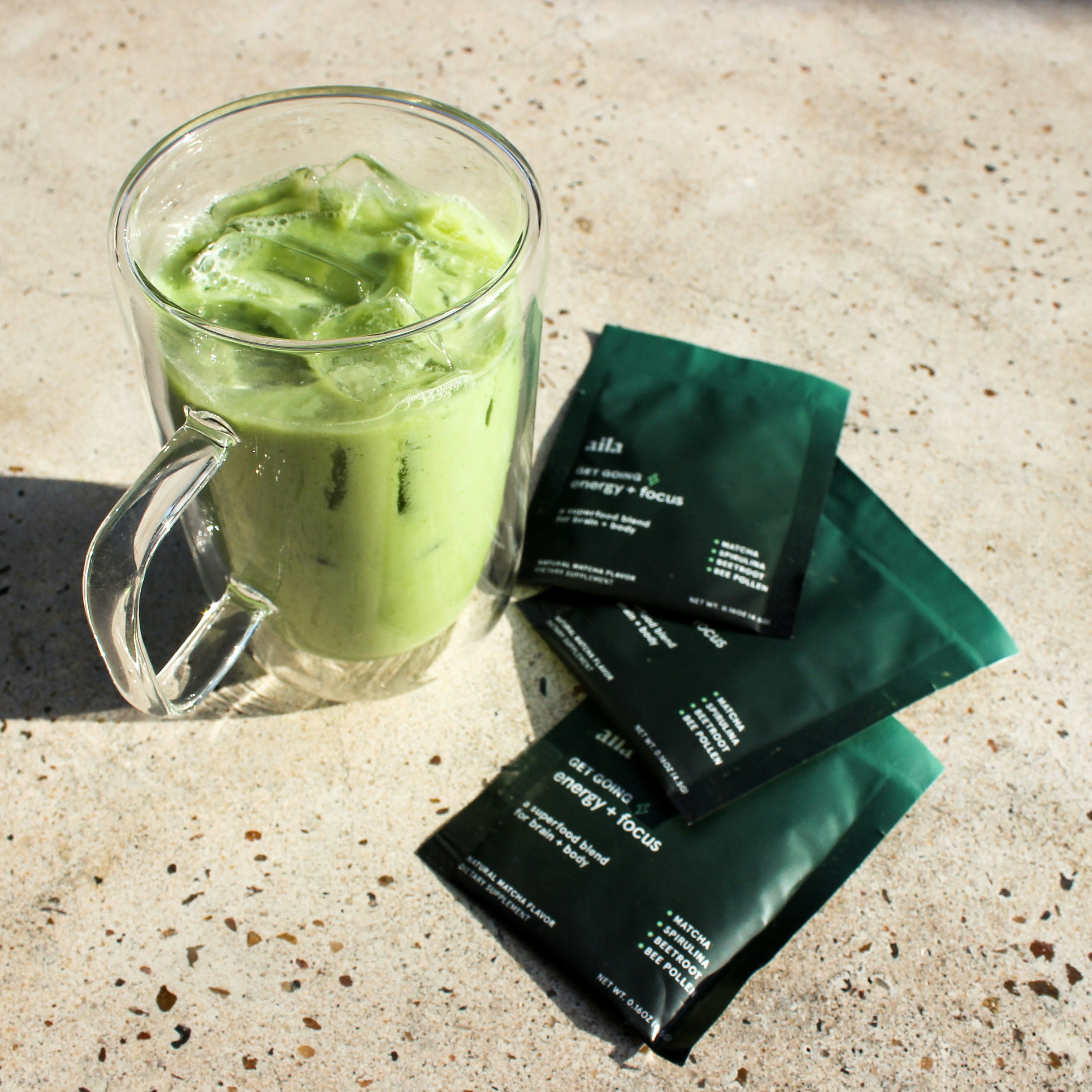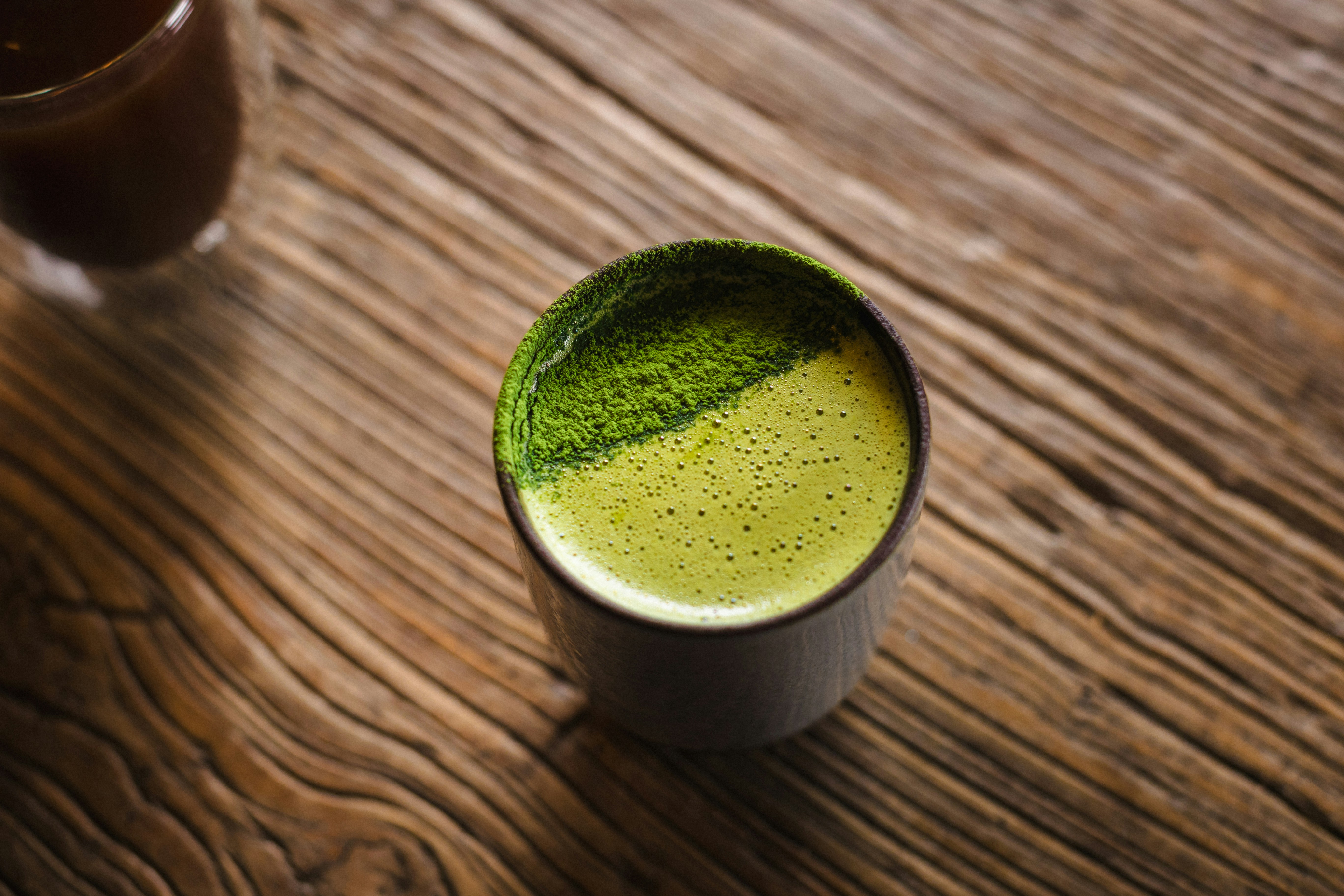Introduction to Green Tea’s Remarkable Energy Benefits
For centuries, green tea has been revered across diverse cultures, celebrated as a potent natural elixir that bestows a multitude of health advantages, including a significant enhancement of energy levels. Originating in the ancient lands of China, this remarkable beverage has seamlessly woven itself into the daily rituals of individuals worldwide. Historical accounts reveal that even Buddhist monks, seeking heightened concentration and sustained vitality during prolonged meditative sessions, embraced the invigorating power of green tea. This time-honored beverage is a treasure trove of bioactive compounds, such as catechins and polyphenols, which play a pivotal role in its remarkable energizing effects.
Among the most noteworthy components of green tea is caffeine. While its caffeine content is comparatively lower than that of coffee, it still delivers a noticeable surge in energy without the turbulent rollercoaster of a crash that frequently accompanies other caffeinated beverages. This more harmonious and balanced release of energy is attributed to the presence of L-theanine, an amino acid found abundantly in green tea that works synergistically with caffeine. This dynamic duo orchestrates a state of heightened alertness and focused concentration that many individuals find invaluable during their daily activities, demanding work schedules, and invigorating workouts.
Anecdotal evidence abounds, with countless individuals reporting a surge in energy levels and a remarkable improvement in mental clarity after incorporating green tea into their dietary regimens. For example, fitness enthusiasts frequently turn to green tea as their pre-workout beverage of choice, citing its remarkable ability to invigorate their physical performance without the jittery side effects commonly associated with traditional energy drinks. Passionate advocates of green tea also share compelling stories about how it has become an integral part of their daily routines, extolling its value as an earthy, refreshing wellspring of energy that contributes significantly to a balanced and fulfilling lifestyle. By delving into these personal experiences and appreciating the historical significance of green tea, it becomes abundantly clear that this extraordinary beverage offers a unique and sustainable pathway to enhanced energy and vitality.
Delving into the Science Behind Green Tea and Energy Enhancement
Green tea has garnered widespread acclaim for its remarkable ability to elevate energy levels without the characteristic crash often associated with many high-caffeine beverages. This unique attribute is largely attributed to two primary components: the stimulating effects of caffeine and the calming influence of L-theanine. Understanding the intricate interplay between these compounds sheds light on why green tea is an exceptionally effective option for sustained energy.
Caffeine is a widely recognized stimulant found in a variety of beverages, including coffee and energy drinks. It exerts its effects by blocking adenosine receptors in the brain, leading to increased alertness and a reduction in feelings of fatigue. However, excessive doses of caffeine can result in unpleasant side effects such as jitteriness and a subsequent energy crash. In contrast, the caffeine levels in green tea are moderate, delivering subtle yet effective boosts in energy without overwhelming the delicate balance of the nervous system.
L-theanine, an amino acid predominantly found in green tea, plays a crucial role in counterbalancing the stimulating effects of caffeine. Research indicates that L-theanine promotes a state of relaxation and reduces anxiety, effectively mitigating the sometimes-overpowering effects of caffeine. This harmonious combination fosters a state of alert calmness, often referred to as “alert relaxation.” Studies suggest that the specific ratio of caffeine to L-theanine in green tea provides a balanced approach to energy enhancement, facilitating improved focus and enhanced cognitive performance without the drawbacks commonly associated with higher caffeine content.
Moreover, the presence of potent antioxidants in green tea, such as catechins, contributes significantly to overall well-being and can even enhance metabolic processes. These components further solidify green tea’s position as a superior choice for those seeking sustained energy without the inevitable crash. Scientific research provides compelling support for these claims, with studies demonstrating that participants consuming green tea experienced significant increases in cognitive function and notable reductions in fatigue levels compared to those consuming other caffeinated beverages.
In conclusion, the unique synergistic relationship between caffeine and L-theanine in green tea promotes sustained energy levels, making it a preferred alternative to conventional energy sources. This makes it an invaluable beverage choice for individuals seeking an effective and enduring boost without the subsequent decline in energy. By opting for green tea, one can enjoy increased alertness and enhanced cognitive function while safeguarding against the inevitable crash associated with higher-caffeine drinks.
Exploring the Traditional Uses of Green Tea in Energy Enhancement
Green tea, derived from the carefully cultivated leaves of the Camellia sinensis plant, has been revered for centuries across diverse cultures for its remarkable invigorating properties. In traditional Chinese medicine, green tea has long been associated with the enhancement of energy and vitality. Ancient Chinese texts recommend it for boosting mental alertness and enhancing physical stamina, underscoring its important role as an essential component of daily life. The time-honored practice of consuming green tea during elaborate tea ceremonies in China not only serves as a reflection of deeply ingrained social customs but also emphasizes its significance in achieving a balanced state of mind and an invigorated body.
Similarly, in Japan, green tea plays a vital role in the deeply rooted cultural practice of the Japanese tea ceremony, known as Chanoyu. This meticulously orchestrated ceremony is steeped in rich tradition, where participants demonstrate profound respect and harmonious connection through the precise preparation and mindful consumption of matcha, a finely powdered form of green tea. Participants often report a profound feeling of heightened energy and enhanced mindfulness during and after the ceremony, attributing this transformative experience to the natural compounds found in green tea, such as the remarkable amino acid L-theanine. This compound is renowned for promoting relaxation without sedation, thus enabling individuals to maintain heightened alertness and unwavering focus.
Personal accounts further validate the remarkable energy-enhancing properties of green tea. Countless individuals have shared compelling testimonials highlighting how incorporating green tea into their daily routines significantly fueled their productivity levels and effectively alleviated the dreaded mid-afternoon slump often caused by more conventional caffeinated beverages. As a natural source of caffeine, green tea provides a gentler, more sustained energy boost, making it the preferred choice for those seeking to enhance their vitality without experiencing a subsequent crash. Through these time-honored traditional practices, the profoundly positive effects of green tea on energy enhancement have been celebrated across cultures, firmly cementing its place as a timeless and healthful beverage.
Green Tea vs. Other Energy-Boosting Beverages: A Comparative Analysis
In the ever-expanding realm of energy-boosting beverages, green tea stands out as a popular and healthful choice for those seeking a viable alternative to more traditional options such as coffee and energy drinks. While coffee is often lauded for its robust flavor and immediate caffeine kick, it can also lead to unpleasant side effects, including jitters, anxiety, and a subsequent crash in energy levels as the effects wear off. In stark contrast, green tea provides a more balanced and sustained energy boost thanks to its unique composition of caffeine and L-theanine, an amino acid that promotes a calm yet alert state.
Energy drinks, on the other hand, are typically laden with high amounts of sugar and artificial ingredients, specifically designed for rapid energy release. While these drinks may deliver a quick surge of energy, they often result in a rapid decline in energy, leading users to consume more and perpetuating a cycle of dependence. Furthermore, the synthetic stimulants present in many energy drinks can contribute to heart palpitations, heightened anxiety, and other undesirable health consequences. Green tea, in comparison, contains a moderate amount of caffeine—around 20-45 mg per cup—offering a gentler form of stimulation that is far less likely to cause spikes in heart rate or exacerbate anxiety levels.
The health benefits of green tea extend far beyond mere energy enhancement. Rich in potent antioxidants, particularly catechins, it supports not only metabolic health but also overall wellness. Unlike energy drinks that may pose significant risks to health due to their high caloric and stimulant content, green tea can be consumed regularly without detrimental effects. Thus, for those seeking a sustained energy boost alongside a healthful lifestyle, green tea presents itself as the superior option. It provides a prolonged, stable energy increase, enabling individuals to maintain their productivity and focus without the undesirable crashes often associated with coffee and energy drinks.
Seamlessly Incorporating Green Tea into Your Daily Routine
Integrating green tea into your daily routine can be an incredibly rewarding experience, both for your energy levels and overall well-being. To embark on this journey, consider the most opportune times to enjoy this rejuvenating beverage. Many individuals find that drinking green tea in the morning can help jump-start their day, providing a gentle boost of caffeine without the jitters and anxiety commonly associated with coffee. Alternatively, savoring a cup in the afternoon can serve as a perfect pick-me-up, helping to stave off the post-lunch slump often experienced during work hours. Experiment with different times to find what works best for your individual needs and preferences.
When it comes to preparation, the method you choose can significantly affect the taste, aroma, and health benefits of green tea. One popular and effective method is to steep loose-leaf green tea or tea bags in water that has cooled to around 160 to 180 degrees Fahrenheit, allowing for a more delicate and nuanced flavor profile. Aim for a steeping time of 2 to 3 minutes, as this will maximize the release of beneficial antioxidants without making the tea excessively bitter. Investing in a quality tea infuser or teapot can enhance the ritualistic aspect of your green tea experience, making the process more enjoyable and aesthetically pleasing.
Making green tea a regular part of your daily routine can also help you cultivate a sense of mindfulness and presence. Consider setting aside specific moments where you can focus solely on the experience of drinking the tea, savoring each sip and appreciating the subtle flavors and aromas. Perhaps you could create a cozy and inviting corner in your home dedicated to this ritual, or share a cup of green tea with a friend or loved one during meaningful conversations. This not only highlights the cultural significance of tea-drinking but also offers healing properties that can soothe the mind, body, and spirit.
Incorporating green tea into your daily life may require some adjustments and experimentation, but the numerous benefits are well worth the effort. As you forge a deeper connection with this ancient beverage, you may find it enhances your energy levels throughout the day, improves your focus and concentration, and allows you to embrace a healthier and more balanced lifestyle.
Health Benefits of Green Tea: Beyond the Energy Boost
Green tea is widely acclaimed not only for its remarkable ability to enhance energy levels without the subsequent crash often associated with caffeinated beverages but also for a plethora of additional health benefits. Among these, the potent antioxidant properties of green tea are particularly noteworthy. Rich in polyphenols, especially catechins, green tea contains powerful compounds that effectively combat oxidative stress and inflammation in the body. Scientific studies have indicated that these antioxidants can help protect cells from damage, potentially lowering the risk of chronic diseases such as heart disease, cancer, and Alzheimer’s disease. For instance, a study published in the prestigious Journal of Nutrition found a strong correlation between high consumption of green tea and a reduced risk of cardiovascular diseases.
Moreover, green tea is often touted for its potential role in weight management and metabolic health. Certain research suggests that the thermogenic properties of green tea extracts may enhance metabolic rate, leading to increased fat oxidation and overall weight loss, especially when combined with regular physical activity and a balanced diet. However, results can vary significantly among individuals, and it’s essential to note that green tea should be viewed as a valuable supplement to a healthy lifestyle rather than a standalone solution for weight loss.
Another compelling benefit of green tea is its positive impact on mental clarity, cognitive function, and emotional well-being. The presence of L-theanine, an amino acid found abundantly in green tea, has been shown to promote relaxation without sedation, enhancing focus, concentration, and overall cognitive performance. Studies indicate that the synergistic combination of caffeine and L-theanine found in green tea helps improve cognitive performance more effectively than caffeine alone. This powerful synergy can contribute to a sharper mind, improved memory, and better decision-making under pressure.
It is important to recognize that while these health benefits are supported by extensive research, individual experiences with green tea may vary based on dietary habits, individual biology, and lifestyle factors. Therefore, those considering incorporating green tea into their health regimen are encouraged to observe their own responses and consult with a healthcare professional when necessary.
Spiritual and Mindful Practices with Green Tea: A Deeper Connection
Green tea, revered for its numerous health benefits and invigorating properties, also holds a significant place in spiritual and mindful practices across various cultures. Historically, its consumption has been associated with serenity, tranquility, and clarity of thought, making it a preferred beverage for meditation, mindfulness routines, and other contemplative practices. The gentle stimulation provided by green tea, primarily due to its caffeine content combined with the calming properties of L-theanine, creates an ideal environment for reflection, introspection, and inner peace.
Incorporating green tea into a daily mindfulness regimen can provide a grounding anchor, helping practitioners focus their thoughts, quiet the mind, and cultivate a deeper sense of presence. For instance, a personal anecdote from a dedicated meditation enthusiast illustrates how sipping green tea before meditation significantly transformed her practice. The act of preparing the tea—mindfully observing the leaves unfurl, feeling the warmth of the cup in her hands—became a meditative experience in itself. This mindful preparation and consumption encouraged her to fully embrace the present moment, enhancing her overall meditative state and deepening her connection to her inner self.
Moreover, many practitioners find that the simple ritual of drinking green tea can serve as a mindful pause in the midst of a busy and demanding day. The act of consciously tasting the delicate flavors, appreciating the subtle aromas, and feeling the warmth of the tea can ground one’s thoughts and bring a sense of calm, particularly when life feels overwhelming or stressful. Taking a few moments in silence with a cup of green tea can create space for contemplation, gratitude, and self-reflection, reinforcing a deeper appreciation for the present moment and all that it holds.
Integrating green tea into spiritual practices is not just about the beverage itself; it’s about cultivating a deeper connection with one’s surroundings, one’s inner self, and the present moment. Embracing this time-honored tradition can lead to profound insights, self-discovery, and personal growth, aiding in achieving mental clarity, emotional balance, and spiritual well-being. Thus, green tea emerges not only as a healthful and invigorating drink but also as a powerful tool for enhancing spiritual awareness and fostering mindful living.
Green Tea Recipes for an Energy Boost: Delicious and Invigorating
Incorporating green tea into your daily diet can be both enjoyable and incredibly beneficial for enhancing your energy levels and overall well-being. Below are some creative and delicious recipes that showcase the versatility of this remarkable ingredient, helping you reap the energizing rewards without the usual crash associated with high-caffeine beverages.
1. Green Tea Smoothie: A Revitalizing Blend
This refreshing and nutrient-packed smoothie combines the goodness of green tea with the natural sweetness and vitamins of fruits. Start by brewing a cup of your favorite green tea and allowing it to cool completely. In a blender, combine one cup of cooled green tea, half a banana, a handful of fresh spinach, a tablespoon of honey or maple syrup for added sweetness, and a few ice cubes. Blend until smooth and creamy. This vibrant green drink is rich in antioxidants from green tea, essential vitamins and minerals from the spinach and banana, and provides an immediate and sustained energy boost.
2. Matcha Energy Bites: A Perfect On-the-Go Snack
These no-bake energy bites are perfect for a quick and convenient pick-me-up when you’re on the go. To make them, combine one cup of rolled oats, two tablespoons of almond butter or your favorite nut butter, one tablespoon of honey or maple syrup, and one teaspoon of matcha powder (a concentrated form of green tea) in a mixing bowl. Mix well until all ingredients are thoroughly combined, then form the mixture into small bite-sized balls. Refrigerate for at least 30 minutes, or until firm. These energy bites not only offer a sustained energy release but also provide a delicious nutty flavor enriched with the unique and slightly earthy taste of matcha.
3. Green Tea Infused Muffins: A Healthy and Delicious Treat
Elevate your baking and enjoy a healthy treat with these green tea-infused muffins. Start by brewing a strong cup of green tea and setting it aside to cool slightly. In a large mixing bowl, combine one cup of whole wheat flour, half a cup of sugar or your preferred sweetener, a pinch of salt, one teaspoon of baking powder, and one teaspoon of baking soda. In a separate bowl, whisk together one egg, half a cup of plain yogurt or your favorite milk alternative, and half a cup of the brewed green tea. Slowly incorporate the wet ingredients into the dry mixture, mixing until just combined. Pour the batter into greased muffin tins, filling each about two-thirds full, and bake for approximately 20 minutes at 350°F, or until a toothpick inserted into the center comes out clean. These muffins are a good source of fiber and antioxidants, making them a fantastic energy-boosting snack or breakfast option.
By incorporating these delicious and easy-to-make green tea recipes into your diet, you can enjoy the multitude of health benefits while keeping your energy levels consistently high throughout the day.
Conclusion: Embrace the Revitalizing Energy of Green Tea
Throughout our comprehensive exploration of green tea, we have uncovered its remarkable and multifaceted potential to enhance energy levels without the subsequent crash typically associated with other caffeinated beverages. The unique synergistic relationship between caffeine and L-theanine found in green tea creates a delicate balance that promotes alertness, focus, and sustained energy while minimizing jitters, anxiety, and the dreaded energy crash. This remarkable synergy offers an energy boost that can support sustained productivity throughout the day, allowing individuals to maintain focus, clarity, and peak performance.
Furthermore, green tea is not merely a source of enhanced energy; it is also a conduit for numerous health benefits, including potent antioxidant protection, improved metabolic function, enhanced cognitive performance, and overall well-being. The consumption of green tea can be seamlessly integrated into one’s daily routine, whether enjoyed as a warm and comforting beverage, incorporated into refreshing smoothies, or used as a base for invigorating iced drinks. Each method allows individuals to tailor their green tea experience to their personal preferences and lifestyle while reaping the numerous benefits it offers.
As we conclude this in-depth discussion, we encourage readers to embrace the revitalizing energy of green tea in their own lives. Explore different varieties, experiment with various preparation methods, and discover what invigorates and inspires you the most. Consider documenting your own personal journey with green tea, including the various recipes you try, the specific effects you experience, and any tips or insights you gain along the way. By sharing your encounters and valuable tips with others, you contribute to a broader dialogue about the transformative power of this ancient beverage, enhancing not only your own life but also the lives of those around you. Start your green tea journey today and elevate your energy, enhance your well-being, and nurture your overall health.








Leave a Reply